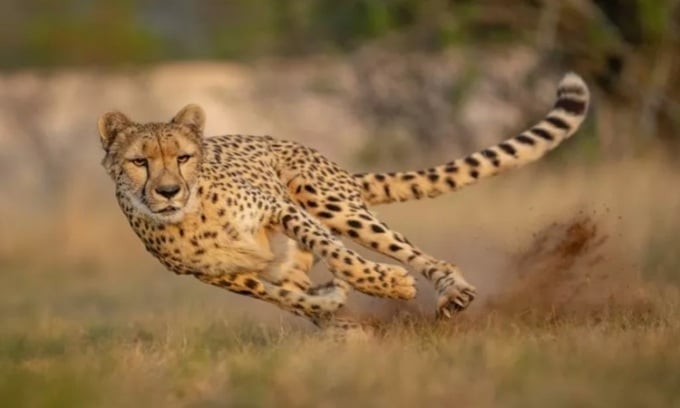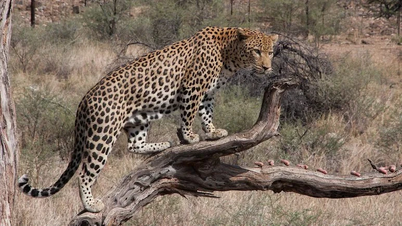Scientists have discovered that cheetahs can run faster than 100 km/h thanks to their appropriate body weight.

The cheetah is the fastest animal on the planet. Photo: Mateo Juric
Fast-running animals like cheetahs are typically medium-sized. An international team of researchers from Imperial College London, Harvard University, the University of Queensland and the University of the Sunshine Coast set out to find out why, publishing their findings in the journal Nature Communications, Newsweek reported on March 13.
Dr David Labonte from the Department of Bioengineering at Imperial College London and colleagues found that there are two limits to how fast animals can run: how fast and how much their muscles can contract. In the first limit, called the “momentum capacity limit”, smaller animals’ muscles are affected by how fast they contract. In the second limit, called the “work capacity limit”, larger animals are limited by how much their muscles contract.
According to Professor Christofer Clemente of the University of the Sunshine Coast and the University of Queensland, cheetah-sized animals exist at a physical sweet spot of 50kg, where the two limits intersect. As a result, they are the fastest of all, capable of reaching speeds of up to 105km/h.
When testing the model's accuracy, the team found that it correctly predicted the top running speeds of a wide range of animals, including large mammals, birds, and lizards. The model not only answers the question of how one species runs faster than another, it also sheds light on how muscles evolved and provides clues as to why there are such large differences between groups of animals. For example, why large reptiles like crocodiles are slower than mammals.
This is because muscles in the limbs make up a smaller percentage of the reptile’s body, says study co-author Taylor Dick of the University of Queensland. They need to reach their performance limits with less body mass, meaning they need to be small to move quickly. For large animals like rhinos and elephants, running is like lifting a giant weight because their muscles are relatively weak and require more strength to overcome gravity. As a result, animals slow down as they get larger.
Research also shows that the heaviest animal alive today on land is the African elephant, weighing 6.6 tons.
An Khang (According to Newsweek )
Source link



![[Photo] 60th Anniversary of the Founding of the Vietnam Association of Photographic Artists](/_next/image?url=https%3A%2F%2Fvphoto.vietnam.vn%2Fthumb%2F1200x675%2Fvietnam%2Fresource%2FIMAGE%2F2025%2F12%2F05%2F1764935864512_a1-bnd-0841-9740-jpg.webp&w=3840&q=75)



![[Photo] National Assembly Chairman Tran Thanh Man attends the VinFuture 2025 Award Ceremony](/_next/image?url=https%3A%2F%2Fvphoto.vietnam.vn%2Fthumb%2F1200x675%2Fvietnam%2Fresource%2FIMAGE%2F2025%2F12%2F05%2F1764951162416_2628509768338816493-6995-jpg.webp&w=3840&q=75)






































































































Comment (0)